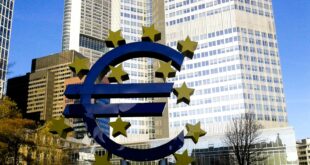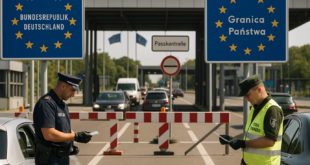Due to drastically increasing numbers of infections, London has declared a “state of emergency” or “major incident”. The mayor of the British capital, Sadiq Khan, wrote in a press release that the threat from the virus had reached a critical point. “One in 30 London residents currently has Covid-19. If we don’t respond immediately, our health service is at risk of being overwhelmed and more people will die.”
London has a population of more than nine million.
Between 30 December and 6 January, the number of patients in hospitals increased by 27 per cent, according to official figures, and the number of patients on ventilators by 42 per cent. Khan expects the numbers to continue to rise.
“Our heroic doctors, nurses and NHS staff are doing a great job, but because case numbers are rising so fast, our hospitals may soon be overwhelmed,” Khan explains. NHS (National Health Service) is the British health service. According to the statement, hospital beds could run out in the coming weeks.
The government and experts also blame the high numbers on the new, possibly much more contagious coronavirus variant. A map of the British health authority Public Health England (PHE) shows that the mutation is particularly widespread in London and in the east and south-east of England. In these regions, the new virus variant now accounts for more than 80 percent of new infections.
READ ALSO What Brexit deal means for EU travellers to UK
The United Kingdom recorded its highest daily death toll on Friday at 1,325 since the start of the COVID-19 pandemic.
A further 68,053 COVID-19 cases were reported – also a new daily high – meaning almost three million people have now tested positive for the disease in the United Kingdom, which has a total population of around 67 million, and has the world’s fifth-highest official death toll from COVID-19 at nearly 80,000.
The designation of “major incident” is usually reserved for attacks or grave accidents, notably those likely to involve “serious harm, damage, disruption or risk to human life or welfare, essential services, the environment or national security”.
This is not the first time London has declared a “major incident”, most recently with the Grenfell Tower residential tower block fire in 2017, when 72 people died. The major incident was also declared during the 2016 terrorist attacks on London Bridge and Westminster Bridge.
Tope Daisi, London
 THE AFRICAN COURIER. Reporting Africa and its Diaspora! The African Courier is an international magazine published in Germany to report on Africa and the Diaspora African experience. The first issue of the bimonthly magazine appeared on the newsstands on 15 February 1998. The African Courier is a communication forum for European-African political, economic and cultural exchanges, and a voice for Africa in Europe.
THE AFRICAN COURIER. Reporting Africa and its Diaspora! The African Courier is an international magazine published in Germany to report on Africa and the Diaspora African experience. The first issue of the bimonthly magazine appeared on the newsstands on 15 February 1998. The African Courier is a communication forum for European-African political, economic and cultural exchanges, and a voice for Africa in Europe.
































